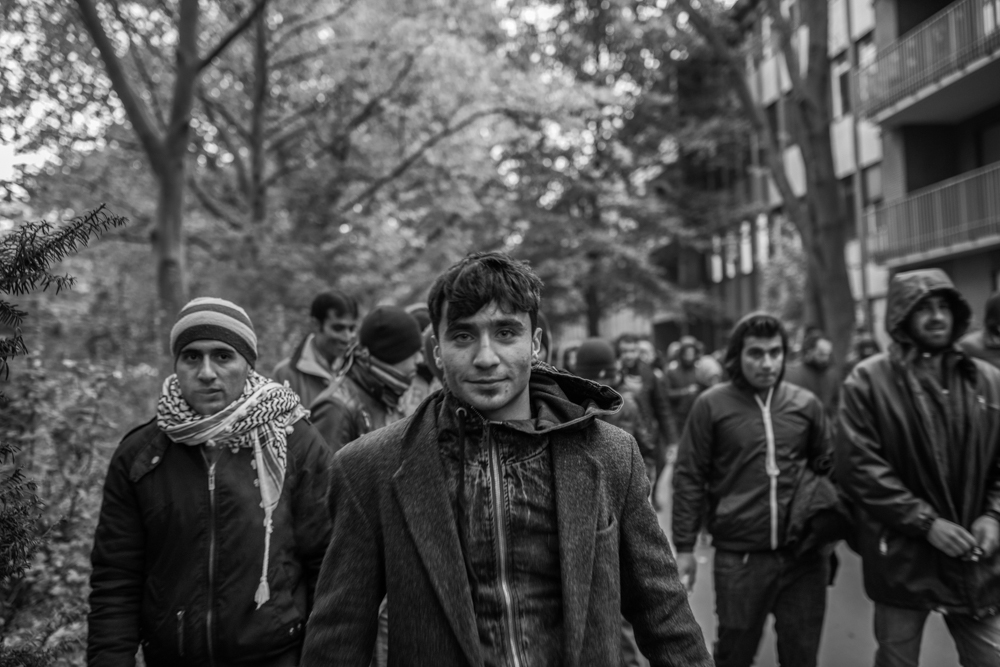BEFORE THE LAW:
Waiting at Lageso
Miguel Winograd
“ … before the Law stands a doorkeeper. To this doorkeeper there comes a man from the country who begs for admittance to the Law. But the doorkeeper says that he cannot admit the man at the moment. The man, on reflection, asks if he will be allowed, then, to enter later. ‘It is possible,’ answers the doorkeeper, ‘but not at this moment.’ ”
— F.K.
Germany, where upwards of one million asylum-seekers arrived in 2015, has become one of the focal points of the refugee crisis. Civil society organizations have stepped forward to supplement state migration institutions and infrastructure, which have proven woefully inadequate to process this unprecedented wave of asylum seekers. In Berlin the inefficiency of the bureaucratic system is displayed for all to see in the social services offices which, until October, 2015, served as the one and only point of registration for arriving refugees–the Landesamt für Gesundheit und Soziales, or Lageso. Hundreds of Afghans, Pakistanis, Iraqis, Syrians, Bosnians and others have to wait outdoors for weeks at a time, coping with the incoming winter temperatures. A small monitor displays a handful of numbers: the record of the lucky few whose appointment has been called. Groups in the crowd keep spirits high despite the circumstances, cheering every fifteen to twenty minutes when the screen lights up with a new number. German volunteers offer coffee and donated second-hand clothes. The crowd disperses at 5 pm, taking buses back to temporary shelters outside the city, only to return the following morning. The European Dream is slow and painful in the making.
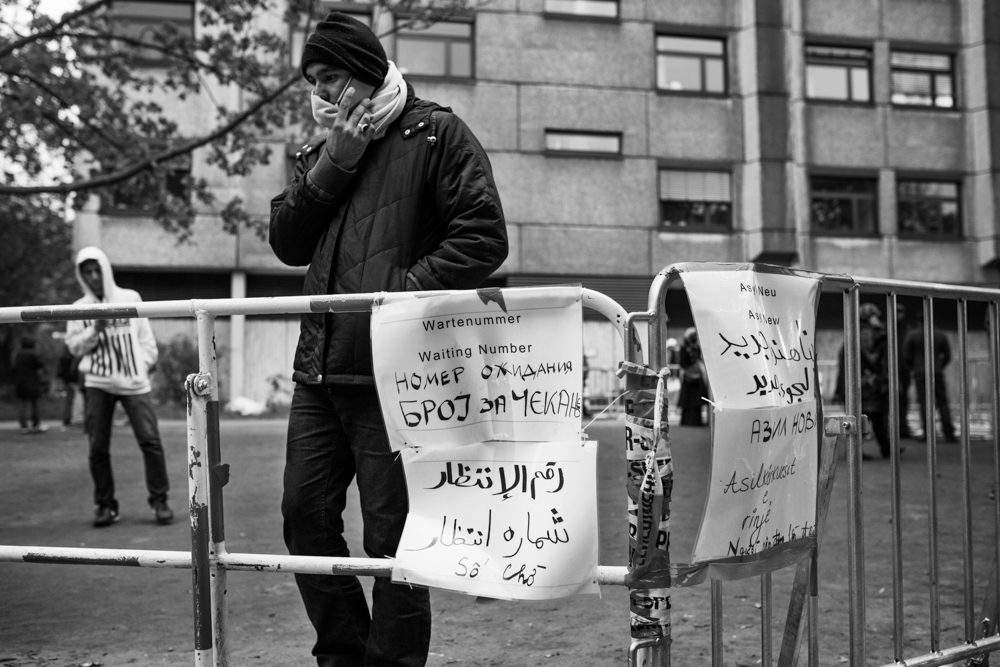
Hand-written signs in multiple languages point to the line to claim registration numbers in Lageso. It is the beginning of a lengthy and inefficient bureaucratic process.
Berlin, Germany. October 13, 2015. © Miguel Winograd
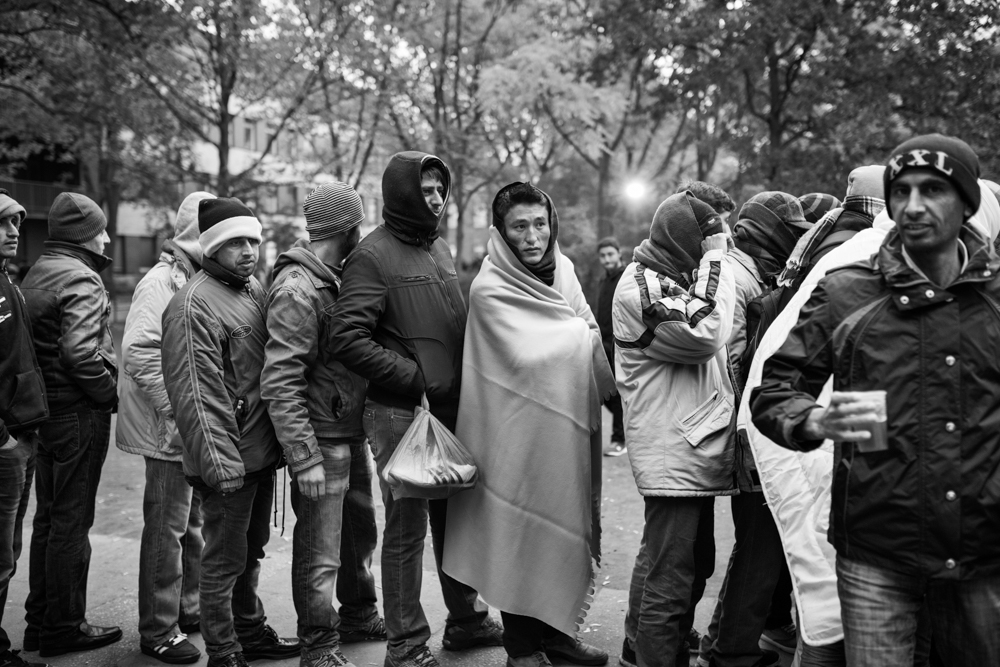
Afghan, Pakistani, and Syrian refugees line up for a warm cup of coffee handed out by volunteers, outside the registration center for refugees in Berlin. In late October, recognizing the inefficiencies of the system and the incoming winter temperatures, German authorities opened a second registration center in the capital.
Berlin, Germany. October 13, 2015. © Miguel Winograd
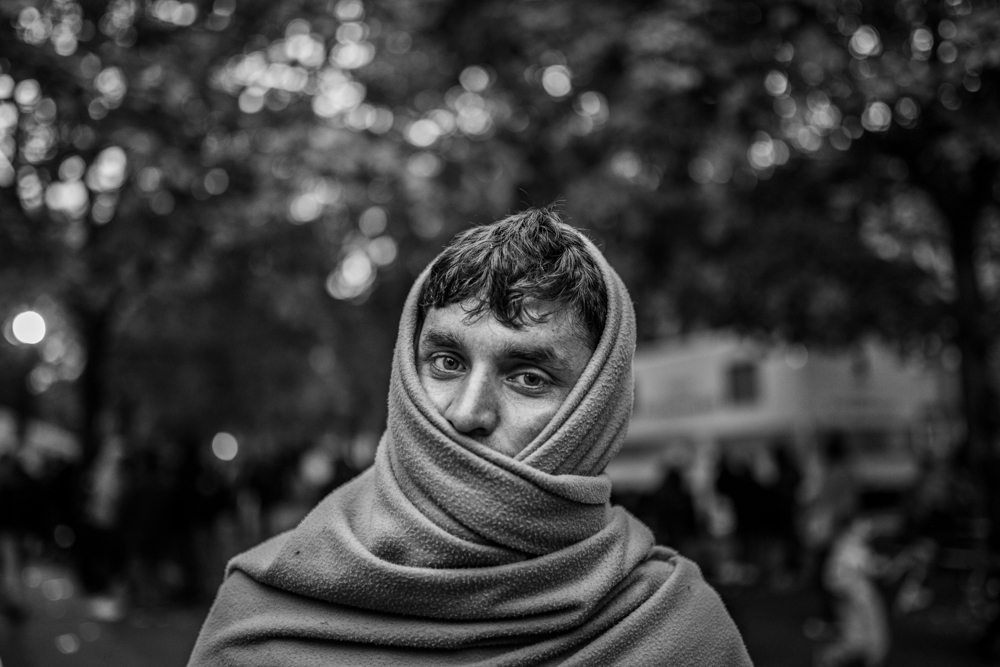
An Afghan refugee waits for a registration number in the courtyard of Lageso in Berlin. The number is just a first step towards an initial appointment and does not guarantee success in the asylum application, which is a months-long process.
Berlin, Germany. October 13, 2015. © Miguel Winograd
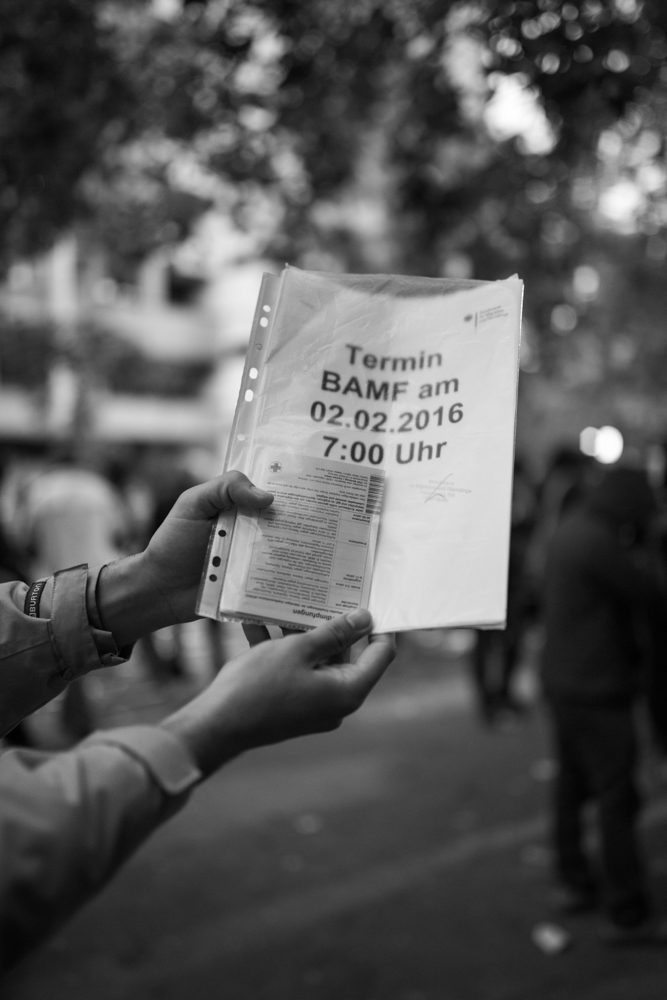
A Syrian refugee holds up documents certifying an initial appointment with German migration authorities scheduled for February, 2016.
Berlin, Germany. October 13, 2015. © Miguel Winograd
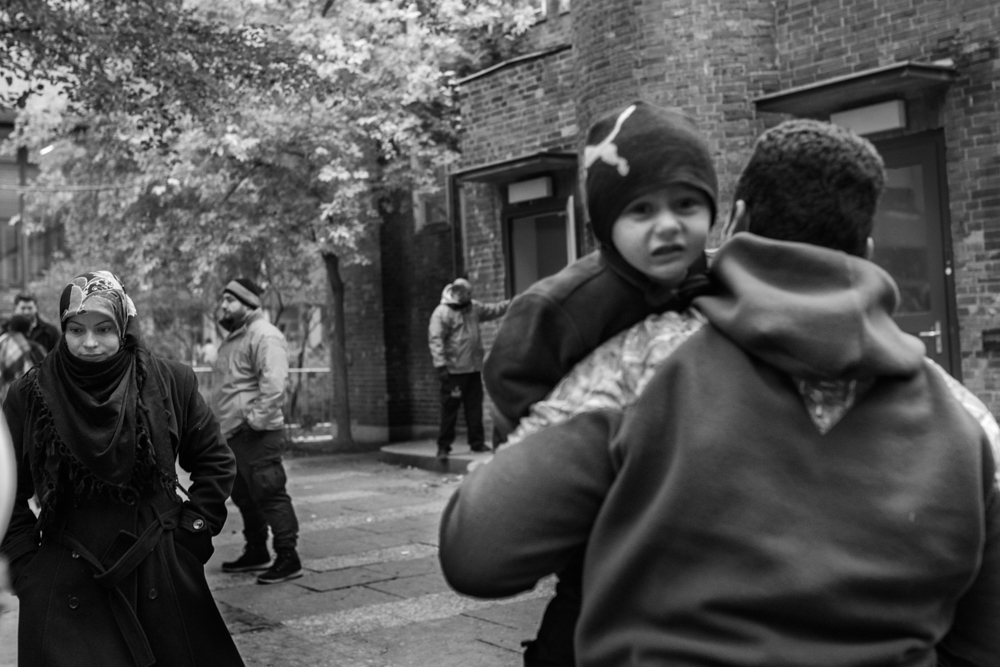
A Syrian family steps into an appointment with officers from the Federal Office for Migration and Refugees [Bundesamt für Migration und Flüchtlinge or BAMF for short].
Berlin, Germany. October 13, 2015. © Miguel Winograd
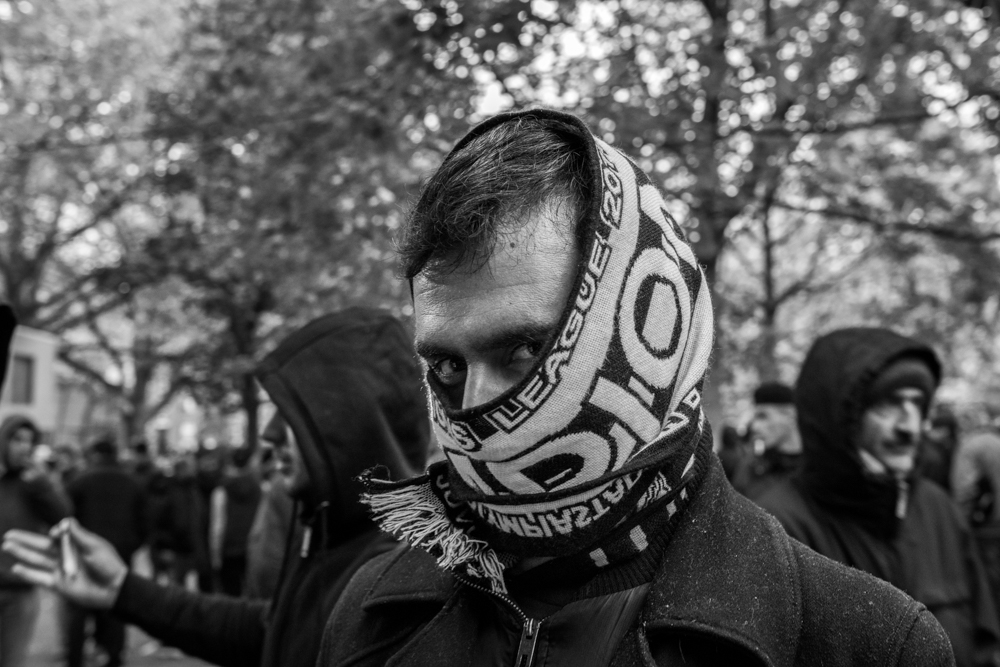
An Afghan refugee tries to stay warm after a long day of waiting.
Berlin, Germany. October 13, 2015. © Miguel Winograd
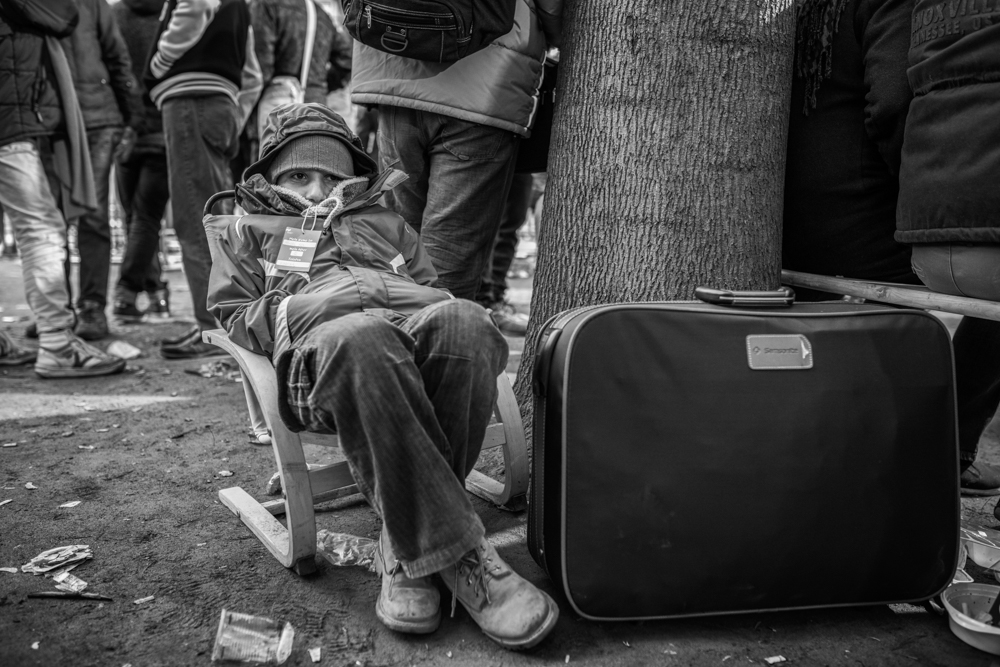
A Syrian boy sits outside the social services office in Berlin. With nowhere else to go, entire families have to spend full days waiting in the courtyard of Lageso for a registration appointment.
Berlin, Germany. October 13, 2015. © Miguel Winograd
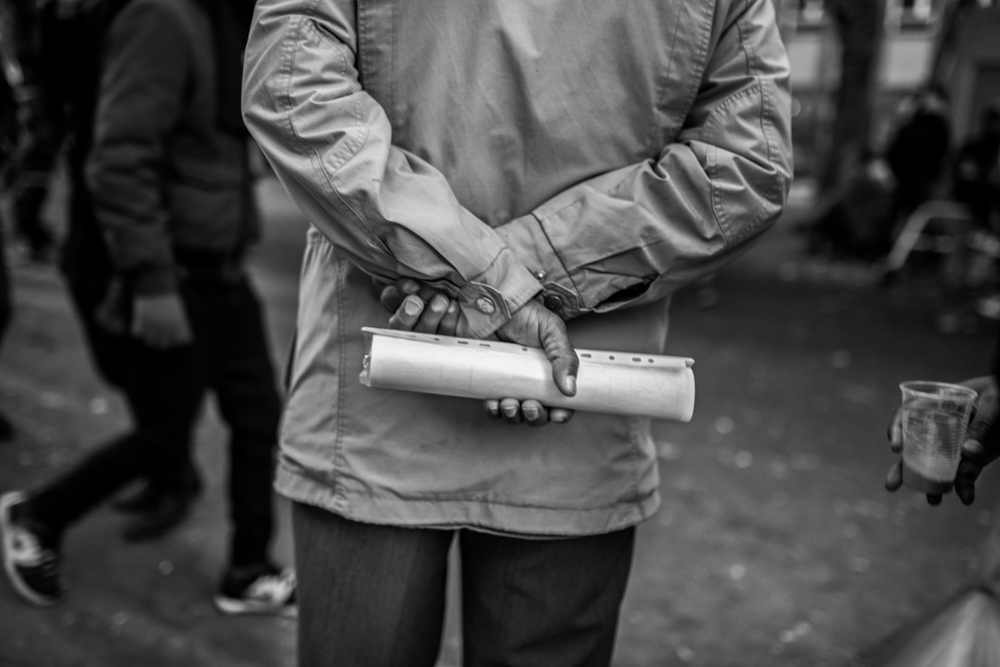
An elderly man grips documents certifying his turn to speak with migration authorities.
Berlin, Germany. October 13, 2015. © Miguel Winograd
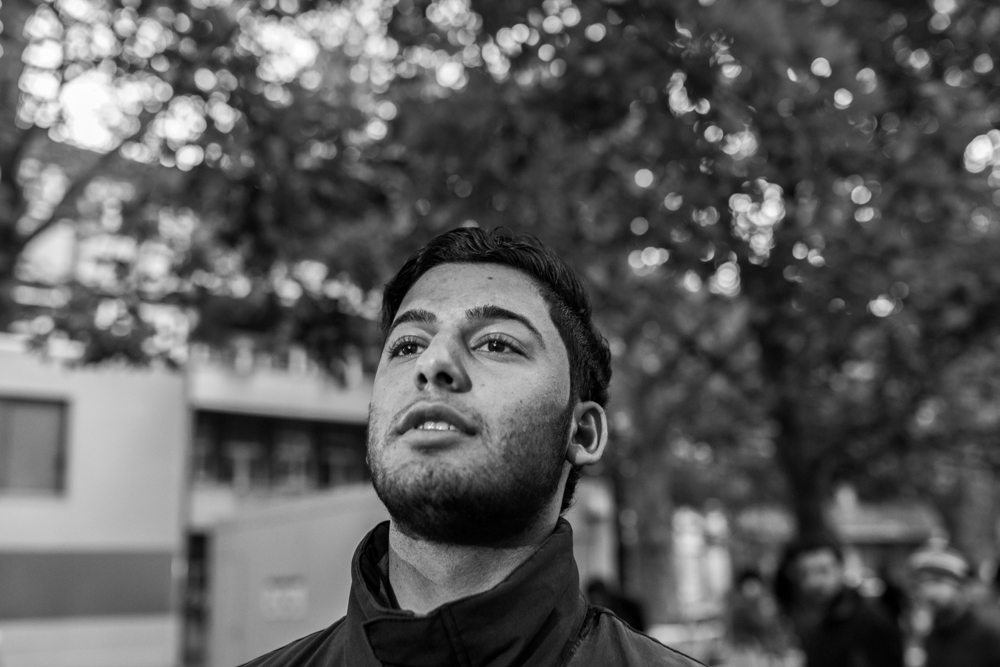
A Syrian young man gazes expectantly at the screen displaying the handful of registration interviews being serviced by BAMF at one time.
Berlin, Germany. October 13, 2015. © Miguel Winograd
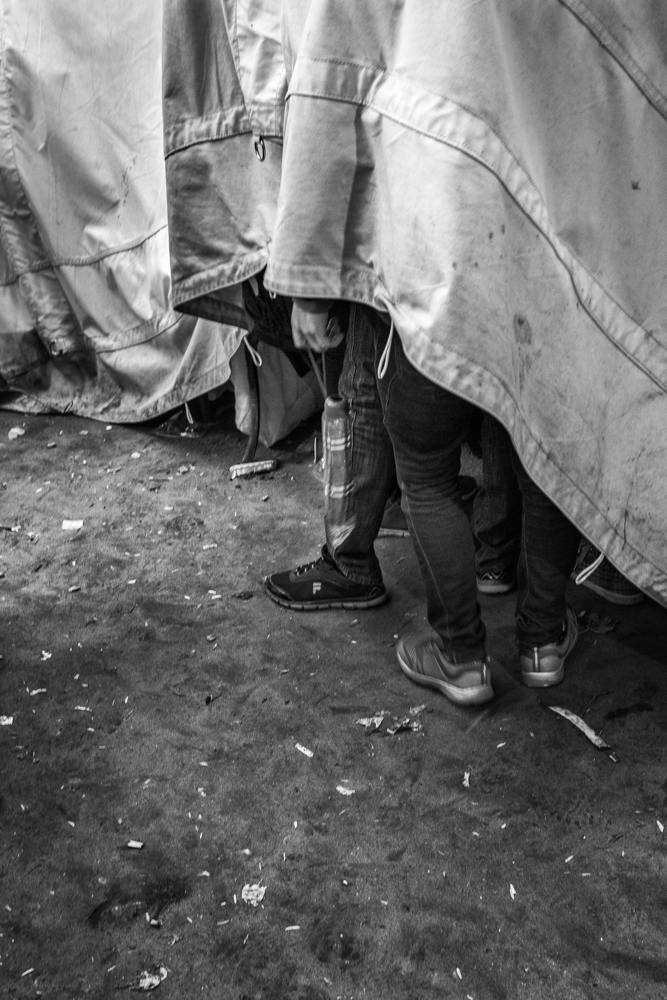
A precarious tarp tent is pitched in the courtyard, where only a small segment of the crowd struggles for space.
Berlin, Germany. October 13, 2015. © Miguel Winograd
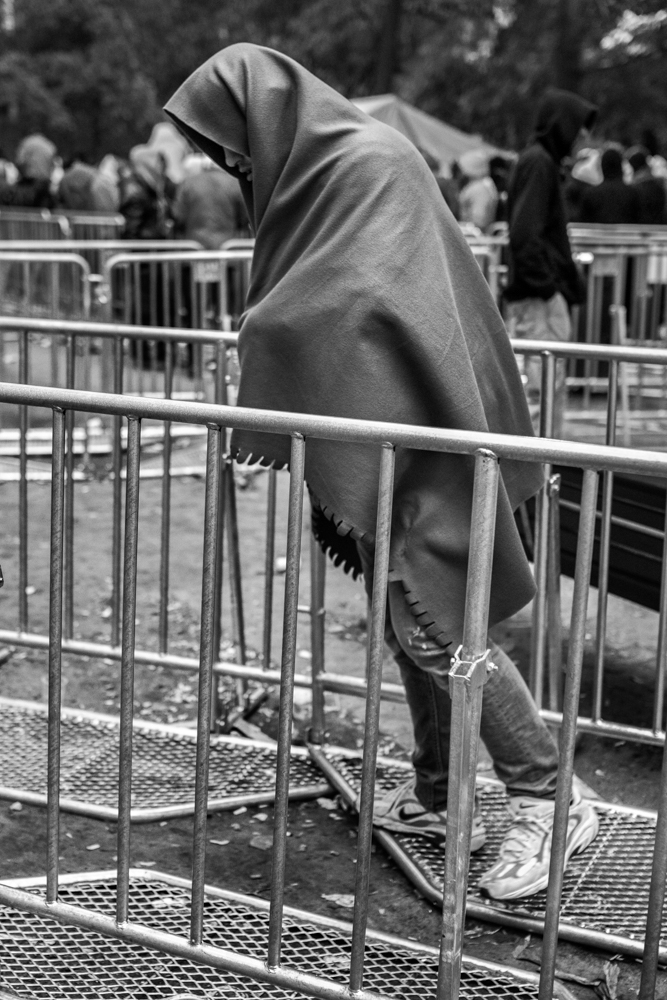
After an arduous journey with precious few belongings, asylum seekers try to keep warm with donated blankets and cling to their patience.
Berlin, Germany. October 13, 2015. © Miguel Winograd
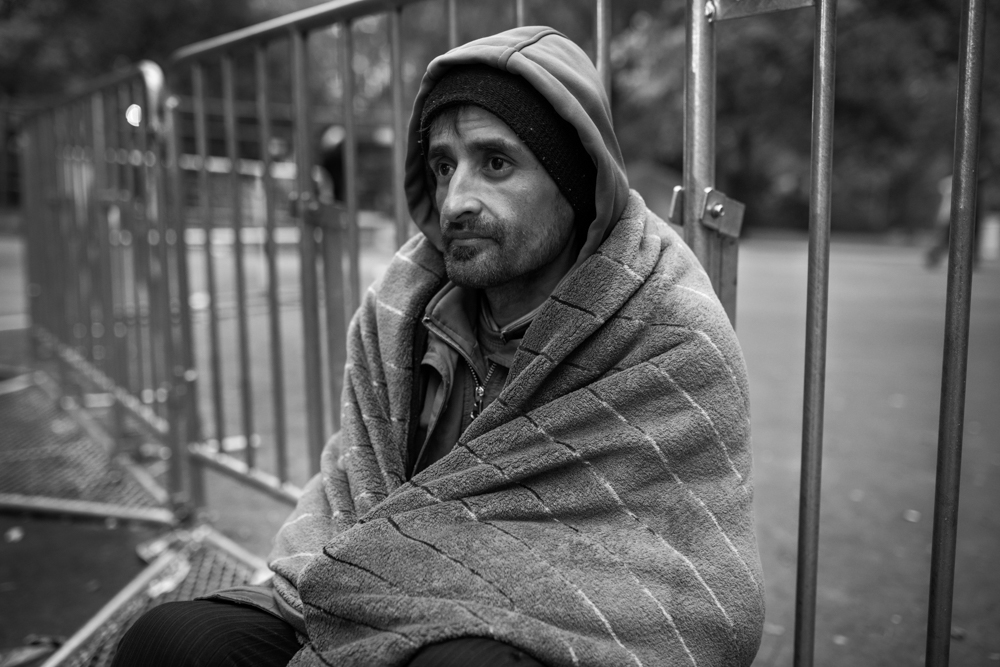
Some refugees like this Afghan man, don't have access to temporary shelters, and simply bundle up to spend the cold night in the courtyard at Lageso.
Berlin, Germany. October 13, 2015. © Miguel Winograd
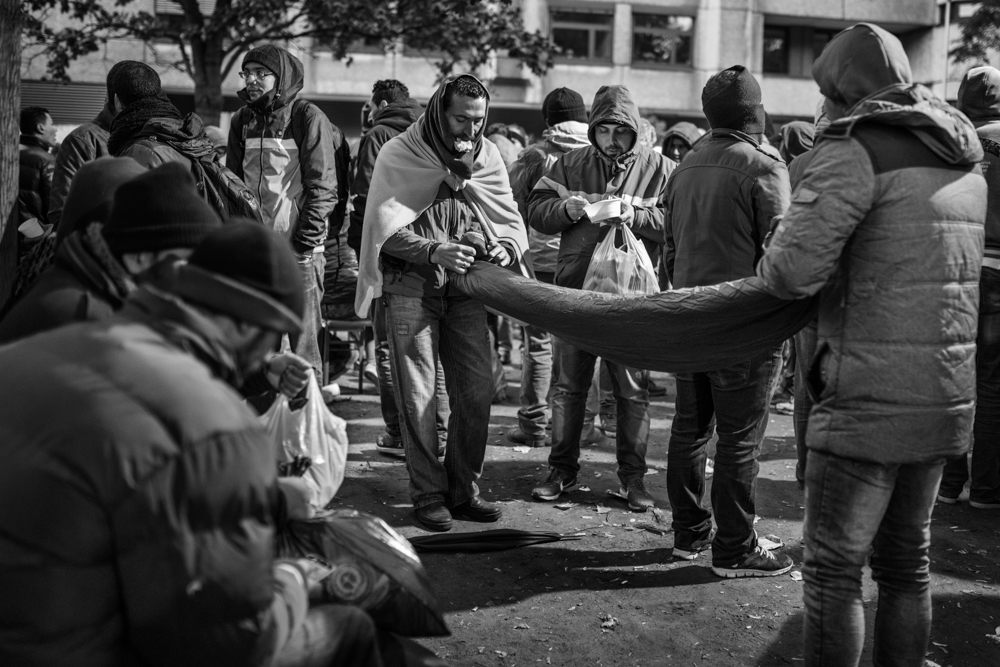
Others are luckier, and pack their things to board buses to camps and shelters outside the city, many of which are located in the state of Brandenburg.
Berlin, Germany. October 13, 2015. © Miguel Winograd
